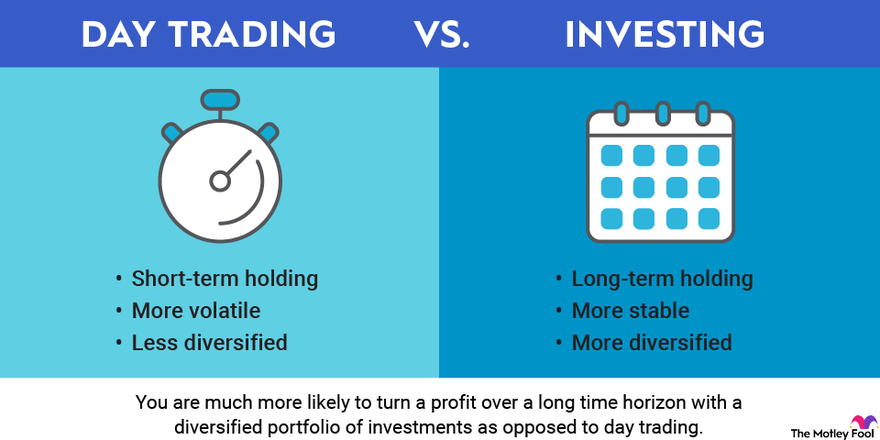Did you know that insider trading can make a stock price jump faster than a cat chasing a laser pointer? In the world of day trading, insider information plays a crucial role, but it's not without its complexities. This article delves into what insider information is, how it impacts trading strategies, and the legal ramifications of using it. You'll learn to identify signals of insider information, the risks involved, and how to differentiate insider trading from traditional market analysis. Additionally, we’ll explore the common sources of insider information, regulatory detection methods, and the penalties for misuse. Finally, we’ll discuss ethical ways to gain market insights and protect yourself from scams, ensuring your trading practices align with the standards set by DayTradingBusiness.
What is insider information in day trading?
Insider information in day trading is non-public, material data about a company that can influence its stock price. It includes confidential earnings reports, mergers, or executive changes not yet announced. Traders use this info to make quick, profit-driven decisions before the market reacts. However, trading on insider info is illegal and can lead to severe penalties.
How does insider info impact day trading strategies?
Insider info can give day traders an unfair edge by revealing upcoming moves before the market reacts. It allows quick, informed decisions—buying or selling before others catch on, boosting profits. Relying on insider info risks legal trouble and market manipulation charges. It can lead to false confidence or risky trades if the info is inaccurate or outdated. Overall, insider info skews the market dynamics, making strategies unreliable and exposing traders to serious legal and ethical risks.
Is using insider information legal in day trading?
No, using insider information in day trading is illegal. It violates securities laws because it gives an unfair advantage and can lead to criminal charges and fines.
How can traders identify insider information signals?
Traders spot insider information signals by monitoring unusual trading volume, sudden price spikes, or gaps that lack news catalysts. They watch for patterns like large block trades just before earnings or product launches. Insider info often causes sharp, unexplained moves on low volatility days. Following regulatory filings, leaked news, or suspicious social media activity can also hint at insider info. Trustworthy signals come from credible sources indicating insiders might be trading based on non-public knowledge.
What are the risks of relying on insider info?
Relying on insider info risks legal trouble like fines and jail, plus it’s unreliable—insiders can be wrong or change their minds. It can lead to poor trades based on false or incomplete data, causing financial losses. Using insider info breaches securities laws, risking lawsuits and damage to reputation. It also creates ethical issues, undermining fair markets and your credibility.
How does insider trading differ from market analysis?
Insider trading involves buying or selling securities based on non-public, material information from inside sources, which is illegal. Market analysis, on the other hand, uses public data like charts, financial reports, and news to predict stock movements. While insider trading relies on confidential knowledge, market analysis depends on publicly available information.
Can insider info lead to quick profits in day trading?

No, insider info can lead to quick profits in day trading, but it's illegal and risky. Using non-public, material information violates laws and can result in severe penalties. Most successful day traders rely on technical analysis, market trends, and news, not insider info. Relying on insider info is dangerous and can wipe out your account fast.
What are common sources of insider information?
Common sources of insider information in day trading include corporate executives, employees, or insiders sharing non-public company news, confidential financial reports, regulatory filings before they’re public, industry contacts, and leaked information from trusted sources. Some traders also gain insights from legal channels like earnings calls or press releases that aren’t yet widely analyzed.
How do regulators detect insider trading activities?
Regulators detect insider trading by analyzing unusual stock price movements, trading volume spikes, and patterns inconsistent with market trends. They monitor communications like emails, phone calls, and messages for leaks of confidential information. Investigators track suspicious trades made just before significant news releases. They also use data analytics and surveillance tools to identify traders acting on non-public information. Sometimes, they rely on tips or whistleblower reports to uncover insider trading activities.
What penalties exist for using insider information?

Penalties for using insider information include hefty fines, disgorgement of profits, and criminal charges leading to prison. Regulatory agencies like the SEC can impose civil penalties, while the Department of Justice can pursue criminal prosecution. Convictions can result in bans from trading and damage to reputation.
How can traders protect themselves from insider scams?
Traders can protect themselves from insider scams by verifying trades through official channels, avoiding suspicious tips, and sticking to regulated markets. Stay skeptical of anyone promising guaranteed profits based on insider info. Use reputable brokers and report suspicious activity to authorities. Educate yourself on common scam tactics and always perform due diligence before acting on insider-related tips.
Learn about How to Protect Yourself from Insider Trading Risks
Does insider info influence stock price movements?
Yes, insider info can influence stock price movements. When insiders trade based on confidential information, it often causes sudden price shifts before public news becomes available. This can lead to rapid spikes or drops in stock value, especially in day trading where quick decisions matter.
What role does news and rumors play in insider trading?
News and rumors can trigger insider trading by providing non-public, material information that traders use to make quick, profitable moves. When traders act on confidential information about a company's earnings, mergers, or regulatory decisions before they become public, it constitutes insider trading. Rumors often spread rumors that, if based on inside info, can lead to illegal trades. Both sources influence day trading by creating rapid price swings, but acting on such information without authorization is illegal and penalized.
How can day traders ethically gain market insights?
Day traders should avoid using insider information, as it's illegal and unethical. Instead, they can gain market insights ethically by analyzing publicly available data, such as financial news, earnings reports, technical charts, and market sentiment. Following credible analysts and using reputable trading platforms provides reliable information. Staying disciplined and conducting thorough research helps traders make informed decisions without crossing ethical lines.
What are the signs of potential insider trading?
Signs of potential insider trading include sudden, unexplained stock price movements before news is public, unusually high trading volume without clear reasons, and traders making profits that seem inconsistent with market trends. If someone consistently trades on confidential information that impacts stock value, it’s a red flag. Watch for suspicious timing—buying or selling right before major announcements or regulatory filings. Unusual patterns, like frequent trades from insiders or accounts linked to company employees, also suggest insider trading.
Conclusion about The Role of Insider Information in Day Trading
In summary, insider information plays a complex role in day trading, influencing strategies and potential profits while posing significant legal and ethical risks. Understanding the nuances between insider trading and legitimate market analysis is crucial for traders. By relying on ethical practices and honing skills to identify signals, traders can navigate this challenging landscape effectively. To thrive in day trading, stay informed and leverage insights from reputable sources like DayTradingBusiness for a deeper understanding of market dynamics.
Learn about The Role of Insider Trading in Advanced Day Trading Strategies